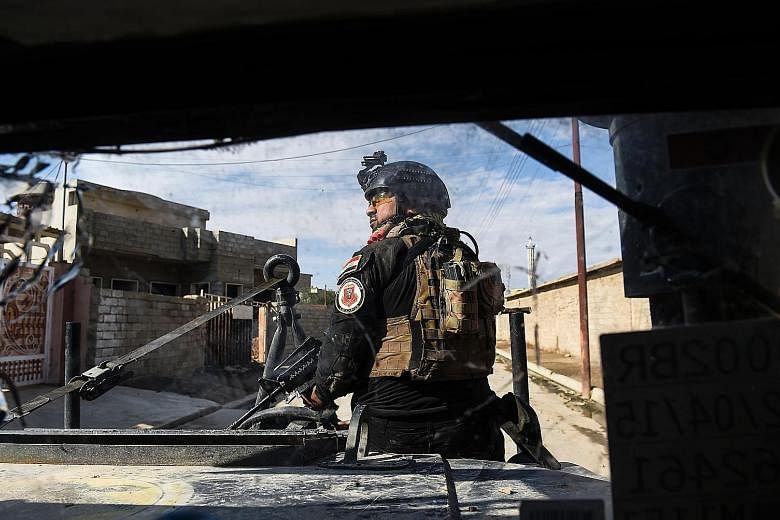IRBIL (Iraq) • More than two years ago, a Christian farmer in his 70s named Mr Mosa Zachariah fled his village near Mosul with, as he put it, only the trousers he was wearing.
He left behind his house, "tons of wheat" and a BMW.
But now that his town, an early target of Iraqi security forces as they advance on Mosul itself, has been cleared of the forces of the Islamic State in Iraq and Syria (ISIS), it is not jubilation he feels, but fear of what awaits him if he tries to return.
He wistfully talked about his city's diversity as something completely unattainable now. "In that time, the Muslims and Christians were like brothers," he said.
Mr Musab Juma, a Shi'ite who used to live in the Mosul area, said he would not be going back either. He relocated to Najaf, in southern Iraq, where he has a food stall and has decorated his home with old photos and antiques from his hometown.
Yazidis, Kurds and Shabaks, other minorities that were once vital pieces of Mosul's human tapestry, have moved on too.
And many Sunni Arabs, who make up most of Mosul's population, say they will never go home again, even if that is where their parents and grandparents are buried.
Before the ISIS occupation began more than two years ago, Mosul was Iraq's most diverse city.
Its rich culture, stretching back to the ancient Assyrians, and reputation for tolerance made it a vital symbol of an Iraq that could at least aspire to being a unified and whole nation.
Now, as Mosul's exiled civilians watch the battle for their city unfold, the only thing they seem to have in common is the belief that they once shared a special history that can never be reclaimed.
Some of that belief, but not all, was torn apart after the United States-led invasion of Iraq in 2003, when many Christians felt threatened and fled as Arabs and Kurds fought over old animosities.
Mosul, home for many former Baathist army officers suddenly tossed from power after the invasion, became a centre of the Sunni insurgency and a stronghold of Al-Qaeda in Iraq, the precursor of ISIS.
"Until 2003, the Mosul community was living in peaceful coexistence, but after that, things changed," said Mr Jafar Khaleel, 46, who left Mosul in 2014 after the ISIS onslaught. "The Sunnis don't trust the Shi'ites. The Shabak cannot live with the Christian. This is what the American occupation left behind."
Back then, there was a social compact for Iraq's minorities that at least promised security in exchange for tolerating the tyranny and lack of personal freedoms under dictator Saddam Hussein's government, led by an elite class of Iraq's minority Sunni population.
Today, there is widespread nostalgia for that time, though it is not shared by most of Iraq's Shi'ite majority, now in power.
"For generations, life was normal there," said Mr Sabah Salim Dawood, 62, a Christian from Mosul. "In the factories, on the farms, in the offices, nobody asked, 'What are you?' "
Now there is a sense of unravelling that feels permanent. "A man cannot describe in words what he misses," said Mr Omar Ahmed, 29, who used to work in Mosul's Health Ministry and is now exiled in the northern Kurdish region.
"The major problem in Iraq is dealing with fear," said Mr Falah Mustafa, the Kurdish region's foreign minister, at a recent panel discussion in Irbil, about Mosul's future. "It's immensely painful to be betrayed by your neighbour."
N YTIMES

